Hub and Spoke Cartel in Comparative Law
Introduction
The hub and spoke cartel, which is a relatively new type of violation in terms of Turkish competition law, is defined as the indirect exchange of information between two independent undertakings which are horizontal competitors on the supplier or retailer level, through another undertaking operating at a different level of the production or distribution chain. Despite the lack of a direct exchange of information among the horizontal competitors, this indirect exchange of information can be considered to have the same negative impacts on the market as a normal cartel. However, it is not possible to conclude that each indirect exchange of information constitutes a hub and spoke cartel. Therefore, the existence of the elements for a hub and spoke cartel should be examined in each individual case.
The elements of a hub and spoke cartel are not defined in the legislation and are determined in light of the jurisprudence of the competition authorities. In this article, the main decisions where hub and spoke cartels have been evaluated in the UK, USA and Portugal are discussed.
Decisions in the UK
The Argos Decision[1]
In the Argos decision regarding the UK toy market, the Office of Fair Trading (“OFT”) determined that there was a hub and spoke application between the toy supplier Hasbro operating in the upstream market and the retailers Argos and Littlewoods operating in the downstream market.
Hasbro learnt that the retailers were unhappy about their profit margins. Hasbro also predicted that if it agreed on prices with Argos and Littlewoods, which were considered as the largest toy retailers, other players in the market would also follow the prices applied by these two retailers. To achieve this result, Hasbro’s sales team negotiated separately with Argos and Littlewoods and informed them that the resale price determined by Hasbro would be applied by their competitors as well.
Argos and Littlewoods began to apply the resale price determined by Hasbro in accordance with the information flow they had obtained from Hasbro. In this process, where Argos and Littlewoods set a common price, it was determined that they never actually came together and exchanged information directly.
The OFT determined that this process caused a hub and spoke type of violation. This decision was challenged by Argos and Littlewoods before the UK Competition Appeal Tribunal on the grounds that no direct communication took place between them. However, the objections were not accepted and the OFT’s decision regarding the existence of the violation was upheld.
The Replica Football Kit Decision[2]
The Replica Football Kit case began when the OFT launched an investigation in order to determine whether competition law had been violated by means of the determination of resale prices in the replica football products market. As a result of the investigation, the OFT decided on the existence of a hub and spoke type of violation. The OFT’s decision was also upheld by the UK Competition Appeal Tribunal.
Umbro, which was one of the undertakings subject to the decision, was a producer of licensed supporter products for English Premier League teams. Umbro was both a producer and a provider in the market. The products produced by Umbro were sold by retailers and delivered to the end consumer. The undertakings operating in the replica football products market were Allsports, Blacks, JJB and Sports Soccer. Among these undertakings, the undertaking with the highest economic power in the market was considered to be JJB.
Umbro suggested retailers recommended sales prices. Due to its market power, JJB was able to set sales prices below the recommended ones. On the other hand, other retailers were unable to compete on price with JJB while still maintaining their profit margins. Faced with this situation, Umbro conducted negotiations with retailers operating in the market. In these meetings, the discussions were focused on applying the recommended sales price determined by Umbro as the minimum price and making sales at or above this price. During the negotiations, it was understood that Umbro stated to each retailer that competitor retailers would also apply the same prices. Therefore, the triangular structure in the hub and spoke where Umbro was the hub and the retailers were the spokes occurred.
The OFT decided that the practices of the undertakings involved in the investigation comprised hub and spoke elements and that these practices constituted a violation of competition law. The Tribunal held that the application of the recommended sales price was not a per se violation of competition law. However, applying the determined recommended sales price as the actual sales price, combined with the undertakings’ intention to raise the prices, did constitute a violation.
According to the UK Competition Appeal Tribunal, the competitive issue addressed in the decision was that each retailer agreed with Umbro that they would not lower their prices and each retailer knew that its competitors were also party to the same agreement. The Tribunal decided that there was a single price-fixing agreement to which each undertaking in the information exchange triangle was a party.
USA Decisions
The Interstate Circuit Decision[3]
In this 1939 decision, which was the first decision to deal with a hub and spoke cartel in the USA, the violation was examined without explicitly using the term “hub and spoke.” Although the decision is an old one from the film screening industry, it sheds light on the elements of a hub and spoke violation.
At the time of this decision, some movie theaters showed films that had just been released, while other theaters screened films that had been released previously. The theaters showing films that had been previously released – the “second run” theaters – showed them for lower ticket prices than those that showed new “first-run” films. Interstate Circuit operated a large number of movie theaters. In letters sent to eight movie distributors, Interstate Circuit stated that in order to reduce the competitive pressure created by the second screening halls on the first screening prices in their own theaters, distributors would be required to set the minimum prices in these second screening theaters. If a distributor did not comply, Interstate would not show that distributor’s first run films its own theaters.
For Interstate Circuit’s plan to work, a large number of producers had to join the plan. Therefore, the letters explained in detail the plan and the actions in case of non-compliance with the plan. Taking into account the meetings that followed the letters, it was considered that all distributors knew that the others were aware of the relevant plan and also knew that enactment of the plan would restrict business. Therefore, the US Supreme Court concluded that although there was no direct communication between the distributors, each of them knew that the main purpose of the plan was the anti-competitive agreement between the distributors and that this situation went beyond a simple vertical relationship[4].
The E-books Decision[5]
In 2010, Apple wanted to enter the e-book market. Amazon was a player already operating in the market at that time. Publishers sold their books to Amazon at wholesale prices. Amazon then freely set the prices for e-books sold on its platform.
Apple and other publishers were not happy about the low sales prices applied by Amazon. That said, Apple offered the publishers a new agency model. In this respect, publishers had the opportunity to determine the sales prices of the e-books they were selling through the iBookstore, under the condition that they did not exceed the sales prices of the printed versions of the books. Under this system, Apple started charging a 30% commission for each e-book sold. However, the fact that Amazon continued to sell at low prices made it difficult for Apple to sell. Therefore, Apple added a most favored customer clause (MFN) to the publishers’ agreements. Thus, Apple prevented publishers from applying higher sales prices in the iBookstore compared to other platforms.
The only way for the publishers to solve this problem was to switch to a similar model with Apple in their agreements with Amazon. However, this was considered as a risky strategy to be applied individually, unless all publishers switched to the relevant model at the same time. Apple played a very active role in coordinating the publishers to negotiate agreements with Amazon. As of March 2010, the majority of the publishers had negotiated agreements including the relevant model with Amazon.
The E-books decision contains all the elements of a hub and spoke cartel as the publishers moved to a new business model in coordination with each other and therefore caused the sales prices to increase in the market. On the other hand, Apple ensured the same sales prices for all e-books and prevented the iBookstore from becoming competitively disadvantaged. In addition to the communication between the publishers, there was also an exchange of information between Apple and the publishers. Therefore, it can be concluded that the elements of the hub and spoke cartel were present in the case at hand.[6]
The Portuguese Competition Authority’s Supermarket Chain Decisions
The Portuguese Competition Authority (“AdC”), in its decisions in 2020, imposed an administrative fine of approximately 304 million Euros on six supermarket chains, two beverage suppliers, a board member and a manager for determining prices on the products of suppliers to the detriment of consumers.[7]
In the initial decision of AdC, Modelo Continente, Pingo Doce, Auchan and Intermarché and supplier Sociedade Central de Cervejas (“SCC”), SCC Board member and a unit manager of Modelo Continente were penalized for determining prices together.
In the second decision, AdC fined the same four chain stores (Modelo Continente, Pingo Doce, Auchan and Intermarché) and Lidl and Cooplecnorte (E. Leclerc) for determining prices through the alcoholic beverage supplier Primedrinks.
In the first decision, as a result of the investigation, AdC determined that the distributors and the supplier determined prices together between 2008 and 2017. This practice concerned Sagres and Heineken beers supplied by SCC, as well as mineral waters such as Bandida do Pomar and Água do Luso. AdC emphasized that by means of determining the prices together in this way, the prices in the retail market increased gradually and regularly.
In the second decision, it was determined that between 2007 and 2017, prices were determined for various products such as the Esporão and Aveleda wines supplied by Primedrinks, The Famous Grouse and Grant´s branded whiskeys, Hendrick's gin, and Stolichnaya vodka and that prices increased slowly but regularly in the retail market as a result.
According to AdC, undertakings stabilized retail sales prices through a common supplier, eliminated price competition between them and prevented the consumers from benefiting from price competition.
AdC also emphasized that the penalized practices constituted competition law violations, which are known as hub and spoke in competition law terminology, that they deprived consumers of price competition and that they were the first decisions related to this type of violation in Portugal. In the decisions, taking into account that the examined behaviors were still ongoing, it was also decided to force these practices to cease immediately.
Conclusion
There is no definition provided for hub and spoke under Turkish competition law. The elements which are set forth by comparative law, primarily by the UK authorities, define the framework for the application of hub and spoke. Hence, for an infringement to be classified as hub and spoke, the two-phased objective and subjective elements should be met. The objective element is the information exchange between undertakings operating at different levels of the market and the influence of this information exchange on the market behavior of undertakings. On the other hand, the subjective element is fundamentally about the existence of the will of the undertakings to distort competition by way of information exchange. The presence of the aforementioned elements should be evaluated in the sui generis conditions of each communication. Not every information exchange gives rise to a hub and spoke cartel.
The competition authorities must basically prove that information is transmitted between undertakings by an intermediary with the purpose of affecting market conditions, that the exchanged information is competitively sensitive and that the undertaking receiving the competitively sensitive information knows that the information is transmitted from its competitor or that it uses the information to conclude that there is a hub and spoke cartel.
- Argos Limited and Littlewoods Limited v. Office of Fair Trading, [2004] CAT 24, https://www.catribunal.org.uk/sites/default/files/Jdg1014Argos141204.pdf (Last accessed: 10.05.2022).
- JJB Sports plc and Allsports Ltd v Office of Fair Trading, [2004] CAT 17, https://www.catribunal.org.uk/sites/default/files/Jdg1021Umbro011004.pdf (Last accessed: 10.05.2022).
- Interstate Circuit, Inc. v. United States 306 U.S. 208 (1939).
- Garrod, L., Harrington, J. E., & Olczak, M. (2021). Hub-and-spoke cartels: Why they form, how they operate, and how to prosecute them (pp. 168-172). The MIT Press.
- United States v. Apple, et al. 12 CV 2826, 2012 WL 1193205 (S.D.N.Y. Apr. 11, 2012); United States v. Apple Inc., 952 F. Supp. 2d 638 (S.D.N.Y. 2013) and United States v. Apple, Inc., 791 F.3d 290 (2d Cir. 2015).
- OECD: Roundtable on Hub and Spoke Arrangements, Background Note (2019), para. 110, https://one.oecd.org/document/DAF/COMP(2019)14/en/pdf (Last accessed: 10.05.2022). For the technical analysis of the cartel, see. Garrod/Harrington/Olczak, p. 191-193.
- Press release dated 21.12.2020 published on AdC’s official website, https://www.concorrencia.pt/en/articles/adc-imposed-fines-six-large-retail-food-chains (Last accessed: 10.05.2022).
All rights of this article are reserved. This article may not be used, reproduced, copied, published, distributed, or otherwise disseminated without quotation or Erdem & Erdem Law Firm's written consent. Any content created without citing the resource or Erdem & Erdem Law Firm’s written consent is regularly tracked, and legal action will be taken in case of violation.
Other Contents

The U.S. District Court for the District of Columbia (“Court”) issued its memorandum opinion (Memorandum Opinion) on November 18, 2025, in the antitrust case (“Case”) between the Federal Trade Commission (“FTC”) and Meta Platforms Inc. (“Meta”). The FTC alleges that Meta monopolized the market…

No-poach agreements, which have become one of the most prominent concepts in global competition law in recent years, are defined in the Glossary of Competition Terms as “agreements, whether direct or indirect, whereby one undertaking agrees not to make job offers to, or hire, the employees of another...

The Competition Board (“Board”) has broad powers to request information from undertakings. The legal basis for this authority is provided by Article 14 of Law No. 4054 on the Protection of Competition (“Law No. 4054”). Under this provision, the Board may request any information it deems necessary from public...
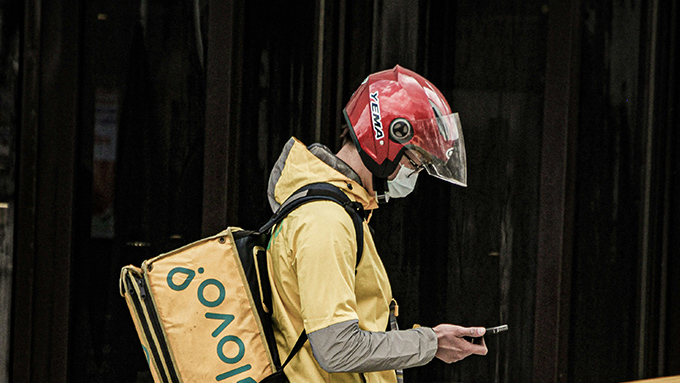
Competition authorities around the world have increasingly focused on labor market infringements under competition law, issuing new regulations and guidance recently. Notable examples include the U.S. Department of Justice and Federal Trade Commission’s joint guidance, the Japanese Fair Trade Commission’s...

Chapter 8 of the General Data Protection Regulation (“GDPR”) sets out the legal remedies available to data subjects in the event of a breach of their rights under the GDPR. Accordingly, each data subject has a right to lodge a complaint with the supervisory authority of the Member State in which they reside, work...

Mergers and acquisitions play a critical role in shaping the competitive structure of the market. Although such transactions can lead to positive outcomes such as the provision of products and services at lower prices, the development of new products and technologies, and improvements in quality, they may also...
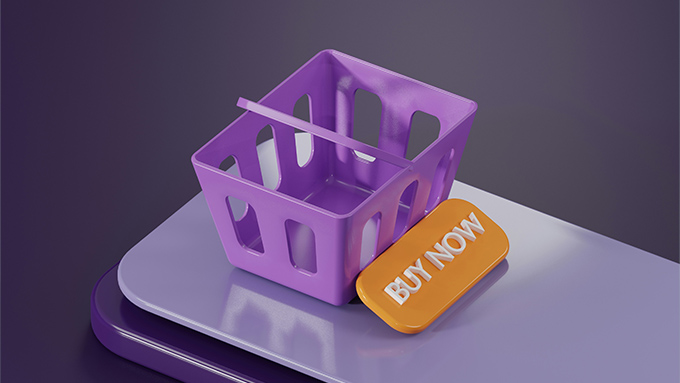
Technology and the opportunities it brings undoubtedly play a key role in strengthening the competitiveness of market players. In this context, pricing algorithms that enable undertakings to monitor publicly available prices and optimize their own pricing strategies have become widely used, especially by digital platforms...

The Regulation on Fines to Apply in Cases of Agreements, Concerted Practices and Decisions Restricting Competition, and Abuse of Dominant Position (“Former Regulation on Fines”), which entered into force upon its publication in the Official Gazette dated February 15, 2009 and numbered 27142, was...

In the past years, the Turkish Competition Board (“Board”) has closely monitored the activities of undertakings operating in the retail sector. As a result of the Board’s record of administrative fines, horizontal type of violations in the retail sector have been highly publicized. Vertical violations such as resale price...

In recent years, numerous automobile manufacturers have announced their goals to reduce carbon emissions, with many brands setting net-zero carbon targets spanning from production processes to the lifecycle of their vehicles. While ongoing debates persist regarding the significantly higher carbon footprint of...

Under Article 15 of Law No. 4054 on the Protection of Competition (“Law No. 4054”), the Competition Board (“Board”) may conduct on-site inspections at the undertakings’ premises when it deems necessary in fulfilling the duties assigned to it. During the on-site inspection, the Board is authorized to examine all...

Agreements and information exchanges between undertakings in labor markets have recently been examined in various preliminary investigations and investigations initiated by the Turkish Competition Authority (“Authority”). Following the investigations in which some undertakings were subject to...

The Turkish Competition Board’s (Board) decision regarding the acquisition of the international road transport business line of Ekol Lojistik AŞ (Ekol) by DFDS A/S (DFDS) has been one of the most prominent transactions on the competition law agenda recently...

The Competition Board (“Board”) has broad powers to request information from undertakings. The Board’s authority to request information arises from Article 14 of the Law No. 4054 on the Protection of Competition (“Law No. 4054”). Under the relevant provision, the Board may request any information it deems...

Doğuş Otomotiv Servis ve Ticaret A.Ş. (Doğuş) applied to the Turkish Competition Authority for an exemption for the practice of recommending basic wages to be applied to sales and after-sales service employees of its authorized dealers and distributors...

Access to Instagram was blocked ex officio by the Information and Communication Technologies Authority (ICTA) as of 2.08.2024. Under Article 8 of Law No. 5651 on the Regulation of Publications on the Internet and Combating Crimes Committed Through These Publications, ICTA can issue an ex officio access...

It is well known that agreements between employer undertakings with regards to their employees, such as wage-fixing and non-poaching agreements, along with competitively sensitive information exchanges have been under the scrutiny of competition authorities all over the world, including the Turkish Competition...

Automotive is one of the sectors in which the world’s most significant investments are made. The Competition Board (“Board”) has been closely interested in the automotive sector over the years and has conducted various examinations and studies in this field...

Competition authorities around the world continue unabated to investigate competition concerns arising from data collection and processing activities of digital platforms and impose severe sanctions as a result...





The startup ecosystem in Turkey has experienced notable growth in recent years. In the last quarter of 2023, 81 startups secured a combined investment of around 60 million dollars. While the number of investments remained consistent when comparing the third quarter periods of 2022-2023, there was a decrease...

Hub and Spoke cartel is a type of violation that is not clearly defined and regulated under Law No. 4054 on the Protection of Competition (“Law No. 4054”). Decisional practices of foreign competition authorities, particularly the UK Competition and Markets Authority’s decisions (“CMA”), are instructive concerning...

The Competition Board ("Board") made an addition to its line of decisions on resale price maintenance with its decision on Sunny Elektronik Sanayi ve Ticaret A.Ş. ("Sunny") . In its decision, the Board thoroughly examined the allegations regarding Sunny's involvement in maintaining resale prices and restricting...

It is observed that the Competition Authority (“Authority”) has recently scrutinized various industries such as fast-moving consumer goods, labor market, pharmaceuticals, and cement. When the reasoned decisions of the Competition Board (“Board”) published in October are examined, it can be seen that the...

Jules Verne says, “Everything on earth has a limited lifespan, nothing that will exist forever can be created by human hands”. Perhaps change is the only constant concept in all our lives. Despite two major world wars and countless periods of crisis, humanity has been undergoing a great change and...

At the meeting of the Fédération Internationale de Football Association (“FIFA”) held on 16 December 2022, the FIFA Council approved the FIFA Football Agents Regulations (“FFAR”). In the FFAR, various amendments have been made, such as the introduction of a maximum service fee limit that football agents are...

Resale Price Maintenance (RPM) is still considered a hardcore restriction under the recently revised Vertical Block Exemption Regulation (VBER), which means that it cannot benefit from a statutory exemption under Article 101(1) TFEU, unlike certain other types of vertical agreements. However, it has been debated...

In competition law, it is important to accurately determine the concept of undertaking, especially in terms of mergers and acquisitions. Therefore, the concept of economic entity aims to reveal the economic units covered by the undertakings. The relationship between the concept of economic entity and family ties comes...

In these days when the Competition Board (“Board”) frequently imposes administrative fines for preventing on-site inspections and both the Competition Authority (“Authority”) and undertakings take legal and technical measures regarding on-site inspections, a striking development has occurred. In its decision...

Online advertising has become an important source for businesses for promoting products and services and meeting consumers, as a result of the rapid development of information technologies and increase in the use of internet. Delivering targeted messages to consumers at the right time through the digital...

Selective distribution systems refer to a type of distribution system in which suppliers commit to selling the contracted goods or services directly or indirectly to distributors selected based on specified criteria, while the distributors commit not to sell the said goods or services to unauthorized...

Fast-moving consumer goods is undoubtedly one of the sectors that the Competition Authority has been working most intensively since the COVID 19 pandemic. Among the most important developments of this period was the Sector Inquiry initiated on Fast Moving Consumer Goods (“FMCG”) Retailing...

In the decision of the Constitutional Court ("Constitutional Court" or "Court") dated 09.11.2022, numbered 2020/67 E. 2022/139 K. (the "Decision"), the annulment of certain articles of the Law Amending the Law on the Protection of Competition No. 4054 ("Law No. 7246") was requested...

In Turkish competition law, certain types of mergers and acquisitions are subject to Turkish Competition Board’s (“Board”) approval in order to gain legal validity. Pursuant to Article 7 of the Law No. 4054 on the Protection of Competition (“Law No. 4054”), the Board is competent to define mergers and acquisitions...

Recently, the Competition Board (the Board) had imposed administrative fines on banks and financial institutions for failing to respond to the request for information within the scope of a preliminary investigation.[i] The request for information that lays the groundwork for the administrative fine imposed by...
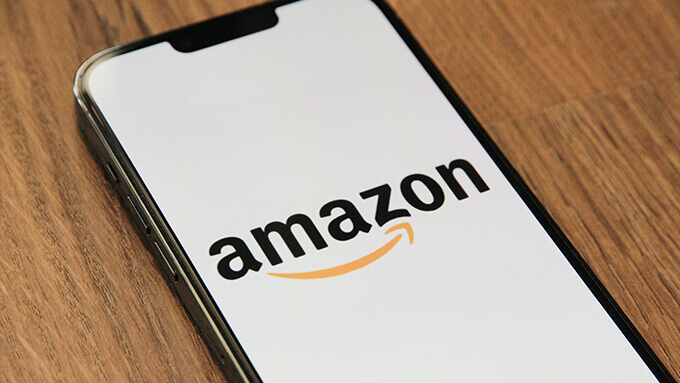
Amazon, a world-famous company, is an e-commerce company that operates the world’s largest online shopping platform. In the backstage, Amazon is a data-driven company whose retail decisions are mostly driven by automated systems, fueled by the relevant market data. That being said, Amazon has a dual...

The right to make on-site inspections is one of the Competition Board’s (“Board”) most important tools for revealing whether Law No. 4054 on the Protection of Competition (“Law No. 4054”) has been violated. The effective use of this authority is quite important in terms of obtaining fruitful results from...
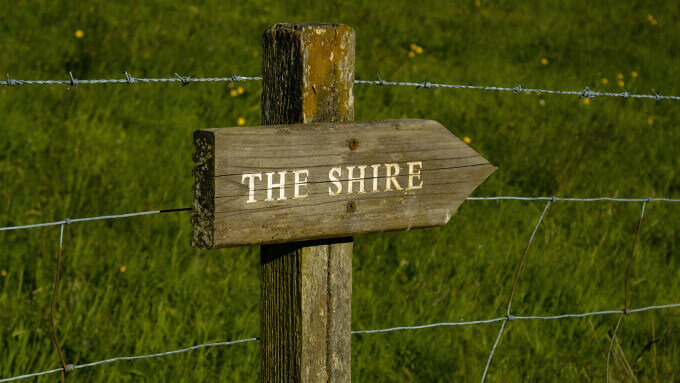
“Harese” is an interesting Arabic word. There is a thorn that camels love very much in the desert. The camel eats the thorn with great greed. So much so that, its mouth bleeds as it eats, but it doesn't stop eating. The taste of the thorn is mixed with the salty taste of its own blood. This mixed taste drives the camel...

Turkey’s leading pay television service provider, Krea İçerik Hizmetleri ve Prodüksiyon A.Ş. (“Digiturk”), is frequently the subject of complaints made to the Competition Authority (“Authority”). In fact, the Competition Board (“Board”) issues a new decision about Digiturk almost every year. In these decisions...

The French Competition Authority (Autorité de la Concurrence), within the scope of the competition law proceeding initiated upon the complaint of Criteo SA (“Criteo”), accepted the commitments proposed by Meta Platforms Inc., Meta Platforms Ireland Ltd., and Facebook France...

While the scope of Competition Board’s (“Board”) power to conduct on-site inspections has increased with the introduction of Guidelines on Examination of Digital Data during On-site Inspections (“Guidelines”), nowadays the amount of monetary fines imposed on undertakings continue to...

The settlement mechanism has only recently been introduced to Turkish competition law practice. It entered into force with the amendment made to the Law on the Protection of Competition (“Law”) numbered 4054 on 16.06.2020, and has been in effect for less than two years. In this relatively...

Due to their increasing share in the economy and rapid growth rate, e-marketplace platforms have come under the increasing scrutiny of the Turkish Competition Authority (“Authority”) as well as many competition authorities around the world...

Pursuant to the Amendment Communiqué Concerning the Mergers and Acquisitions Requiring the Competition Board’s Approval (“Amending Communiqué”) published in the Official Gazette dated March 4th, 2022 and numbered 31768, certain amendments have been introduced...

The Competition Board (“Board”) has recently published a reasoned decision in which it evaluated BSH Ev Aletleri Sanayi ve Ticaret A.Ş.’s (“BSH”) request for negative clearance or exemption with regard to its practice of prohibiting authorized dealers from making sales through online marketplaces...

Shahmaran, a Mesopotamian myth, is believed to take place in Tarsus. According to the myth, the shah of snakes is the immortal and omniscient "Shahmaran." Shahmaran is described as a beautiful woman living in her cave with her snakes...


During the COVID-19 pandemic, competitive concerns about the pricing behavior of chain markets, manufacturers, and wholesalers engaged in the retail trade of food and cleaning supplies led to an investigation by...

When the past decisions and the recent decisions of the Competition Board (“Board”) are examined, a significant increase can be observed in the number of decisions where the Board found hindrance or obstruction of on-site inspections. This situation shows that...
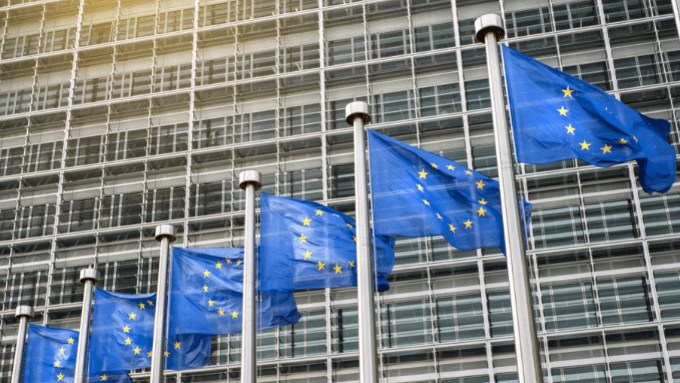
The European Commission began investigating the collusive behavior of Credit Suisse, UBS, Barclays, RBS, and HSBC in the Foreign Exchange (forex) spot trading market in 2019. With the recent press release dated 02.12.2021, the Commission announced that the case is now closed...


Digitalization, in particular, necessitates the rewriting of competition law rules. Competition law is at the center all questions regarding e-commerce and digital platforms. The aforementioned platforms, which have become prominent due to innovations in...

















































